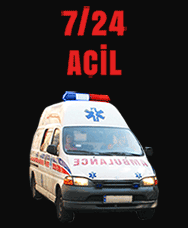Volar V-Y advancement flap without suturing of proximal part for reconstruction of fingertip amputations
Purpose: This study aimed to assess the results of volar V-Y advancement flap surgery without suturing the proximal part to reconstruct fingertip amputations.
Methods: Between 2018 and 2020, 18 patients (16 males, 2 females) who underwent volar V-Y advancement flap surgery without suturing the proximal part due to a fingertip amputation were retrospectively identified and included. All the clinical outcomes were obtained at the final follow-up appointment. The total range of motions of injured fingers and the same ones of the contralateral healthy DIP (distal interphalangeal) joint were measured. Fingertip tenderness was measured with Visual Analog Score (VAS). Cold intolerance and two-point discrimination (2PD) were assessed in the flap area.
Results: The mean age was 37 (range = 19–62) years, and the mean follow-up was 15 (range = 12–22) months. The thumb was injured in 5 patients, index finger in 7, long finger in 4, ring finger in 1, and little finger in 1. Partial or total flap necrosis was not encountered in any patient. There was 17.5 (range= 0-30)% deficiency in DIP joint range of motion in the injured finger compared to the contralateral healthy finger (p=0.38). The mean VAS for fingertip tenderness was 0.11 (range = 0–1). While no cold intolerance was encountered in 14 patients, it was minimal in 2 patients, mild in 1, and severe in 1. 2PD rate increased by 45% (range = 0–120) compared to the contralateral healthy finger(p < 0.034). Sensory function was preserved in all patients.
Conclusion: Volar V-Y advancement flaps without suturation of the proximal part can offer good clinical and aesthetical outcomes, protect the finger contour, and reduce the risk of flap necrosis.
Key words: Volar V-Y advancement flap, fingertip amputations, reconstruction surgery









